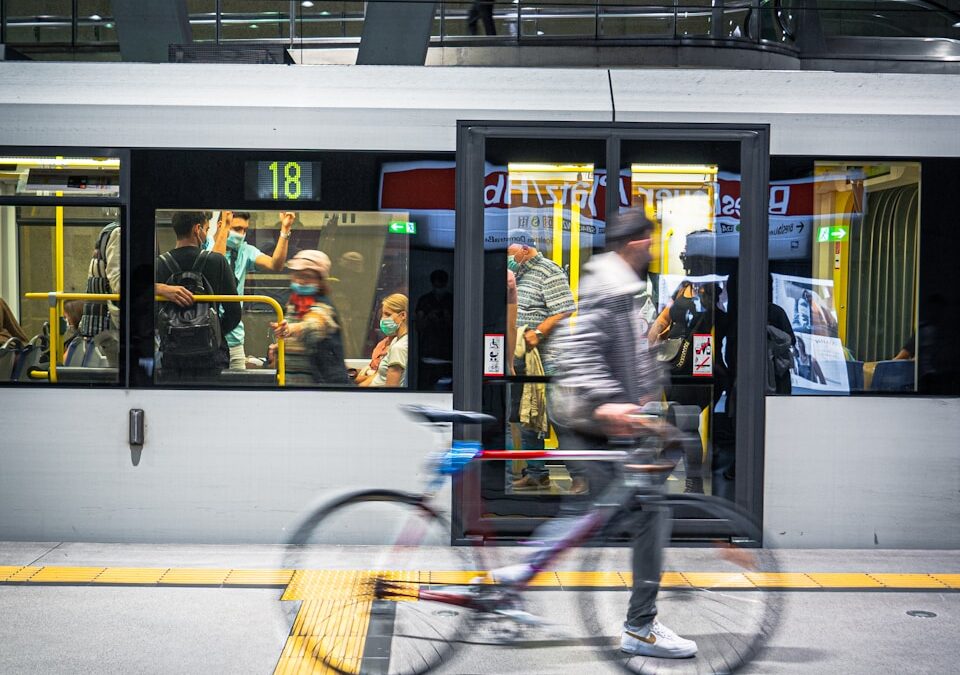Addressing the Challenges of Equity and Access in Autonomous Public Transport
The integration of autonomous vehicles in public transportation systems presents a unique opportunity to enhance urban mobility. In cities like Riyadh and Dubai, where innovation and technology are key to economic growth, the adoption of autonomous vehicles is seen as a major step forward. However, this technological advancement also raises important questions about equity and access, particularly for underserved communities. Ensuring that autonomous public transportation benefits all segments of the population is crucial for fostering inclusive and sustainable urban development.
Promoting Equity in Autonomous Public Transportation
Equity in public transportation means providing all citizens with equal access to transportation services, regardless of their socio-economic status. In Saudi Arabia and the UAE, where diverse populations live in sprawling urban and suburban areas, it is essential to design autonomous vehicle services that are inclusive. This involves extending services to underserved communities, ensuring affordability, and providing accessible vehicles for individuals with disabilities. By prioritizing equity, policymakers can ensure that the benefits of autonomous public transportation are shared broadly, contributing to social cohesion and economic inclusivity. Furthermore, integrating feedback from community representatives can help identify specific needs and tailor services accordingly.
Leveraging Technology for Inclusive Access
Artificial Intelligence (AI) and Blockchain technologies can significantly enhance the inclusivity of autonomous public transportation. AI can optimize routes and schedules based on real-time data, ensuring efficient service delivery to underserved areas. For instance, autonomous shuttles can be deployed in regions where traditional public transportation is limited, providing reliable and affordable mobility options. Blockchain technology, on the other hand, can be used to develop transparent fare systems and ensure secure, tamper-proof transactions. By leveraging these technologies, Saudi Arabia and the UAE can create more accessible and equitable transportation networks that cater to the diverse needs of their populations.
Change Management and Leadership in Implementing Inclusive Policies
The successful implementation of inclusive autonomous public transportation requires effective change management and leadership. Leaders in Riyadh and Dubai must be equipped with the skills to navigate the complexities of technological adoption while ensuring that equity considerations are at the forefront. Executive coaching services can play a pivotal role in developing these leadership skills, helping managers and policymakers to foster a culture of inclusivity and innovation. Change management strategies, such as stakeholder engagement, transparent communication, and continuous evaluation, are crucial for addressing resistance and ensuring the successful adoption of inclusive transportation policies.
Effective Communication and Community Engagement
Effective communication and community engagement are vital for promoting equity and access in autonomous public transportation. Transparent communication with stakeholders, including underserved communities, helps build trust and ensures that their needs are addressed. Public awareness campaigns can educate citizens about the benefits and availability of autonomous vehicle services, reducing apprehensions and fostering acceptance. Additionally, establishing platforms for community feedback and participation can enhance the design and implementation of transportation services, making them more responsive to the needs of all citizens. By prioritizing effective communication and community engagement, Saudi Arabia and the UAE can ensure that their autonomous public transportation systems are truly inclusive.
Ensuring Long-Term Sustainability and Inclusivity
The long-term sustainability and inclusivity of autonomous public transportation depend on continuous monitoring and adaptation. Policymakers in Saudi Arabia and the UAE must remain agile in updating their frameworks to accommodate evolving technologies and emerging social needs. This includes regularly assessing the impact of transportation services on underserved communities and making necessary adjustments. By fostering a culture of continuous improvement and inclusivity, these nations can set global benchmarks for equitable and sustainable urban mobility. The integration of autonomous vehicles in public transportation offers a promising future, but its success hinges on a commitment to equity and access for all.
#AutonomousVehicles #PublicTransportation #Equity #Access #UnderservedCommunities #SaudiArabia #UAE #Riyadh #Dubai #ChangeManagement #ExecutiveCoaching #EffectiveCommunication #BusinessSuccess #ManagementConsulting #ArtificialIntelligence #Blockchain #TheMetaverse #GenerativeAI #LeadershipSkills #ManagementSkills #ProjectManagement

